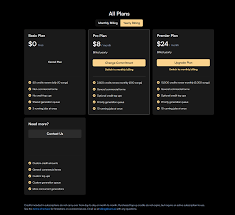The British Phonographic Industry (BPI), the trade association representing the UK’s music industry, has recently made a strong push for better transparency in how AI-generated music is labeled across major streaming platforms like Spotify, Apple Music, Amazon Music, and other DSPs. In a world where artificial intelligence is rapidly transforming music production, this call isn't just timely — it’s essential.

The Rise of AI Music Is Reshaping the Industry
Over the past few years, artificial intelligence has gone from being a background tool to a front-stage player in music creation. Tools like Suno AI, Udio, Boomy, and Mubert allow anyone — regardless of musical training — to create full tracks in seconds using AI prompts or voice input. While this democratization is exciting, it also blurs the line between human and machine-made content.
As more AI music enters playlists, charts, and even commercial sync placements, industry professionals — from artists to rights holders — are raising a valid question: Should listeners know whether a track is made by a human, AI, or both?
The BPI believes the answer is a clear yes.
What Is the BPI Proposing?
The BPI is calling for mandatory AI music tagging across all major DSPs (Digital Service Providers). This would mean every track distributed on platforms like Spotify, YouTube Music, Apple Music, or Deezer must clearly indicate whether it includes AI-generated vocals, instrumentals, or songwriting elements.
Here’s a breakdown of what this might look like in practice:
Tracks fully composed by AI would be tagged as “AI-Generated Music.”
Songs using AI to clone voices (e.g., synthetic vocals of dead or living artists) would be flagged as “AI Voice Model.”
Hybrid songs using human-AI collaboration could be labeled “Human + AI Collaboration.”
These tags would be visible to listeners in the track details and accessible via API for playlist curators and rights managers.
Why the Push Now?
The urgency behind the BPI’s request stems from several key trends:
Surge in AI Music Uploads: Spotify alone is reportedly receiving tens of thousands of AI-generated songs every week, many of which are poorly labeled or fully anonymous.
Copyright Confusion: AI can mimic artists’ voices or styles without permission. Without transparent labeling, this leads to legal and ethical grey areas.
Listener Trust: Many listeners value knowing if a song is made by a human or an algorithm. Transparent tags help maintain trust in digital music ecosystems.
Fair Compensation: Without tags, AI music could undercut human musicians, especially if it’s cheaper or algorithmically favored by DSP recommendation engines.
Spotify’s Response to AI Music (So Far)
Spotify has taken some initial steps to deal with the AI music wave, such as:
Removing thousands of fake or spammy AI tracks flagged for violating copyright or platform integrity.
Partnering with companies like Music.AI to build internal detection tools for synthetic audio.
Introducing personalized disclaimers in test playlists to inform users when songs are AI-assisted.
However, Spotify has not yet committed to any form of universal AI tagging. This is where BPI’s intervention could influence platform-wide change — especially in the EU and UK, where music regulation is tightening post-AI Act.
Industry Voices Supporting the BPI
The BPI is not alone in its stance. Several music organizations and high-profile artists have backed the idea of transparent AI tagging, including:
UK Music, an umbrella body for the British music industry, which released a code of practice around AI-generated content.
IFPI (International Federation of the Phonographic Industry), which represents record labels globally, echoing concerns about deepfake vocals and metadata transparency.
Artists like Nick Cave and Young Guru (Jay-Z’s producer) have publicly criticized the misuse of AI in music without proper labeling or consent.
Potential Impact on Listeners and Artists
If AI music tags become standardized across Spotify and other DSPs:
Listeners would have clearer insights into how a track was made, supporting more informed listening choices.
Human artists could better protect their identity, brand, and royalties.
Playlist editors could curate more diverse, ethically sourced playlists, including or excluding AI music based on context.
DSPs would likely need to update their submission systems to collect metadata on AI use, increasing upload transparency.
Is This the Start of AI Music Regulation?
BPI’s call aligns with a broader global push toward AI transparency and governance in creative industries. The EU’s AI Act, set to go into effect by 2026, includes requirements for disclosure when users interact with synthetic content. Similar legislation is under discussion in the US and Japan.
Streaming services, being central to music distribution, will inevitably face regulatory pressure to label, moderate, and report AI usage.
Whether BPI’s proposal is voluntarily adopted or enforced through policy, it’s clear that the way we consume, discover, and define music is undergoing a profound shift.
Conclusion: Why Transparent AI Music Tags Matter
The BPI's call for AI music tags on Spotify and other DSPs is not about limiting technology — it’s about protecting culture, creators, and consumer trust. As the line between human and machine creativity blurs, transparent labeling ensures accountability and choice.
Whether you’re a casual Spotify listener, a bedroom producer using Udio, or a label exec tracking your catalog, knowing what’s AI and what’s not isn’t just a technical issue. It’s a cultural one.
FAQs
Q1: What does AI-generated music mean?
AI-generated music is audio that is partially or fully composed, arranged, or performed by artificial intelligence systems such as Suno, Boomy, or Udio.
Q2: Why is the BPI calling for AI music tags?
The BPI believes that AI-generated content should be transparently labeled on streaming platforms to protect listener trust and artist rights.
Q3: Are there any current AI music tags on Spotify?
As of now, Spotify does not require AI music tagging, though it is exploring detection technologies internally.
Q4: Will this affect how music charts work?
Potentially. If AI music is labeled and excluded from certain charts or playlists, it could reshape digital music trends.
Q5: What tools are used to make AI music?
Popular tools include Suno AI, Udio, Boomy, Aiva, and Mubert — all offering different levels of customization and generative capability.
Learn more about AI MUSIC








